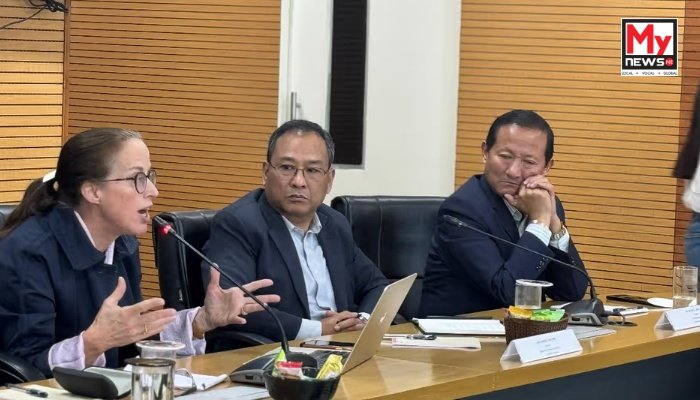Sikkim Government Hosts High-Level Meet on Science, Environment, and Cultural Preservation
Gangtok: In a significant step toward sustainable development, the Government of Sikkim organized a landmark programme focused on science, technology, and environmental conservation on April 16.
Held at the Conference Hall of the Tashiling Secretariat in Gangtok, the initiative was led by Chief Minister Prem Singh Tamang and brought together top government officials, scientific experts, and grassroots community representatives to chart the path for future eco-conscious policymaking.
The meeting, chaired by the Minister for Forest and Environment, Mines and Geology, underscored the government’s commitment to a holistic and inclusive approach to governance. Emphasizing the urgency posed by climate change and biodiversity loss, the minister called for science-backed solutions that also respect cultural traditions and indigenous knowledge systems.
One of the key highlights of the session was a virtual interaction with Mr. Tim Curtis, Director and UNESCO Representative from the New Delhi Regional Office. His contribution added an international perspective to the dialogue, focusing on the vital role of education, global partnerships, and community participation in achieving sustainable development goals.
The session witnessed active engagement from senior officials, including Principal Secretary Sandeep Tambe and Science and Technology Secretary Dhiren Shrestha. They were joined by Assistant Scientific Officer Rajdeep Gurung, Culture Department Secretary BK Lama, IPR Director Umesh Sunam, and Anna Balikei, Research Coordinator at the Namgyal Institute of Tibetology. Their presence reflected the government’s intent to foster cross-departmental synergy for addressing complex environmental challenges.
Significantly, the meeting also gave voice to indigenous communities, with members of the Sikkim Lepcha Association and other traditional knowledge holders participating in the discussions. Their insights highlighted the critical role of age-old practices in shaping resilient and context-specific environmental strategies.
Key deliberations revolved around integrating scientific innovation into ecosystem management, promoting green technologies, and preserving Sikkim’s rich cultural and ecological heritage. The consensus among participants was clear: the future of governance must lie in an interdisciplinary framework—one that merges technical expertise with cultural empathy and community-driven wisdom.
Read More: Sikkim to Celebrate 50 Years of Statehood with ‘Sikkim@50: Golden Jubilee Conclave’ in May 2025

